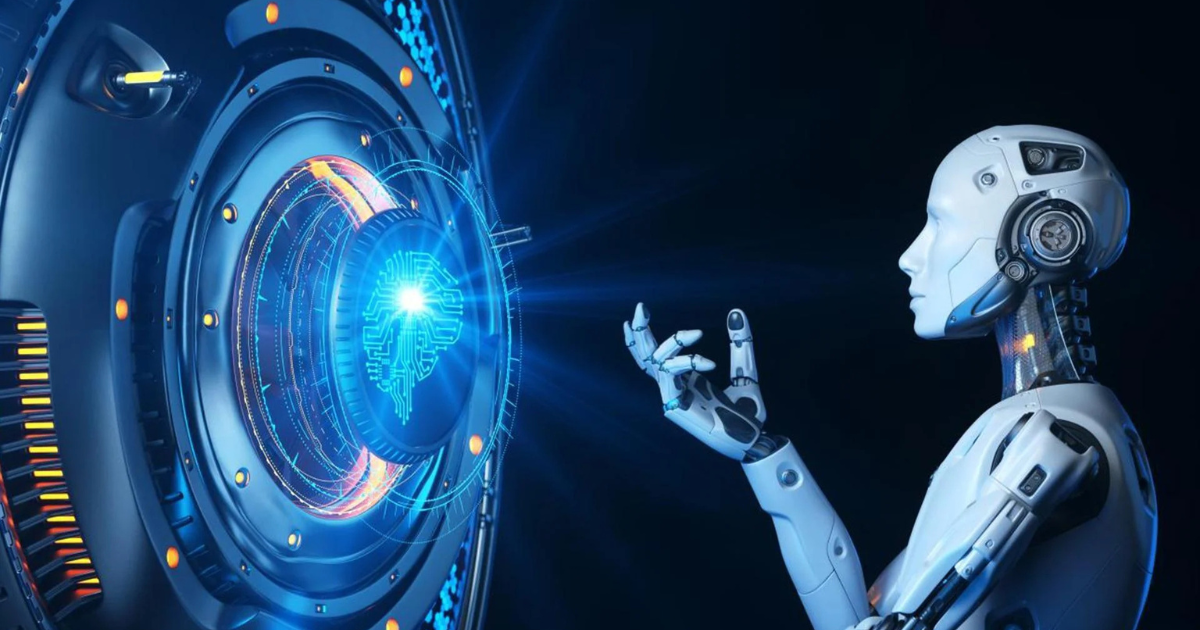Artificial Intelligence (AI) has become an integral part of modern technology, influencing various sectors such as healthcare, finance, transportation, and entertainment. As AI continues to evolve, it brings forward revolutionary trends and innovations that redefine how we interact with technology. This article delves into the key trends shaping the future of AI, the innovations driving its advancement, and the challenges it may face.
Key Trends in Artificial Intelligence
1. AI-Powered Automation
Automation has been one of the most significant applications of AI, streamlining repetitive tasks across industries. With advancements in AI models and robotics, industries like manufacturing, logistics, and customer service are adopting automation to improve efficiency and reduce costs.
2. AI in Healthcare
The healthcare industry is experiencing a transformation due to AI applications. AI-powered diagnostic tools, predictive analytics, and robotic-assisted surgeries are enhancing patient care and medical research. AI-driven drug discovery is also accelerating the development of new treatments.
3. Natural Language Processing (NLP) and Conversational AI
With the rise of large language models, AI has significantly improved its ability to understand and generate human language. NLP advancements are powering chatbots, virtual assistants, and translation services, making human-computer interactions more seamless.
4. AI and Edge Computing
Edge computing, combined with AI, is reducing latency and improving real-time data processing. AI models are being deployed on edge devices like smartphones, IoT sensors, and autonomous vehicles, enabling faster decision-making and reducing reliance on cloud infrastructure.
5. AI for Cybersecurity

AI is playing a crucial role in enhancing cybersecurity by detecting threats, identifying vulnerabilities, and automating responses to cyber-attacks. Machine learning models are being trained to recognize patterns in cyber threats and protect organizations from evolving risks.
6. Ethical and Explainable AI
As AI systems become more complex, concerns over bias, transparency, and fairness are gaining prominence. Researchers are focusing on developing explainable AI models that provide insights into their decision-making processes, ensuring ethical AI deployment.
7. AI in Creativity and Content Generation
AI is increasingly being used for creative applications, including music composition, art generation, and content writing. Tools like generative AI models are enabling users to create high-quality text, images, and videos with minimal human intervention.
8. AI in Autonomous Systems
The development of AI-driven autonomous systems, such as self-driving cars and drones, is progressing rapidly. These innovations have the potential to revolutionize transportation, logistics, and urban mobility, making systems safer and more efficient.
Innovations Driving AI Advancement
1. Quantum Computing and AI
Quantum computing holds the potential to revolutionize AI by exponentially increasing computational power. AI algorithms running on quantum systems can solve complex problems much faster than classical computers, opening new possibilities in fields like cryptography, material science, and optimization.
2. AI and the Metaverse
The integration of AI with the metaverse is shaping immersive digital experiences. AI-powered virtual assistants, personalized content recommendations, and realistic avatars are enhancing how users interact in virtual environments.
3. AI-Driven Personalization
Personalization is becoming more sophisticated with AI’s ability to analyze user behavior and preferences. From e-commerce recommendations to tailored healthcare treatments, AI is improving user experiences by providing highly relevant content and services.
4. AI in Biotechnology and Genomics

AI is accelerating breakthroughs in biotechnology, particularly in genomics research. AI-driven analysis of DNA sequences is helping scientists identify genetic disorders, develop precision medicine, and advance agricultural biotechnology.
5. AI for Climate Change and Sustainability
AI is being leveraged to combat climate change by optimizing energy usage, predicting weather patterns, and improving resource management. AI-powered solutions in smart grids, precision agriculture, and carbon footprint analysis are aiding sustainability efforts.
6. AI in Financial Services
The financial industry is benefiting from AI in areas like fraud detection, algorithmic trading, and risk assessment. AI-driven automation is also improving customer support through virtual financial advisors and chatbots.
7. AI in Smart Cities
AI is playing a crucial role in developing smart cities by enhancing traffic management, energy efficiency, and public safety. AI-driven data analysis is helping city planners optimize urban infrastructure for improved living conditions.
8. AI and Robotics Integration
The combination of AI and robotics is enabling advanced robotic systems with enhanced perception, decision-making, and adaptability. Industries such as healthcare, logistics, and manufacturing are integrating AI-driven robots for complex tasks.
Challenges and Ethical Considerations
1. Data Privacy and Security
With AI relying heavily on data, concerns over data privacy and security are growing. Ensuring robust data protection measures is essential to prevent unauthorized access and misuse of sensitive information.
2. Bias and Fairness in AI
AI models can inherit biases from training data, leading to unfair or discriminatory outcomes. Addressing bias in AI requires the development of fair algorithms and diverse datasets.
3. Job Displacement
The automation of tasks through AI raises concerns about job displacement. While AI creates new job opportunities, there is a need for workforce reskilling to adapt to AI-driven industries.
4. Regulatory and Ethical Frameworks
Governments and organizations are working to establish regulatory frameworks for AI deployment. Ethical guidelines and policies are crucial to ensuring responsible AI usage and preventing potential misuse.
Also Read: The Future Of Machine Learning: Trends And Innovations
Conclusion
The future of AI is promising, with continuous advancements shaping various industries and everyday life. AI-powered automation, healthcare innovations, cybersecurity improvements, and sustainability efforts are some of the key areas driving AI’s progress. However, ethical considerations, data privacy, and regulatory challenges must be addressed to ensure AI’s responsible and beneficial development. As AI technology evolves, it holds the potential to transform society, improving efficiency, personalization, and overall quality of life.
FAQs
1. What industries will benefit the most from AI in the future?
Industries such as healthcare, finance, cybersecurity, manufacturing, and transportation are expected to benefit significantly from AI-driven innovations.
2. How will AI impact job markets in the coming years?
AI will automate repetitive tasks but also create new job opportunities in AI development, maintenance, and ethical oversight. Workforce reskilling will be essential for adapting to AI-driven changes.
3. What are the biggest ethical concerns with AI?
Bias in AI algorithms, data privacy, decision-making transparency, and the potential misuse of AI technology are some of the major ethical concerns.
4. Can AI help address climate change?
Yes, AI is being used to optimize energy consumption, predict climate patterns, and develop sustainable solutions for industries, making it a valuable tool in combating climate change.
5. What role will quantum computing play in AI’s future?
Quantum computing will significantly enhance AI’s capabilities by accelerating complex computations, leading to breakthroughs in various scientific and industrial applications.

